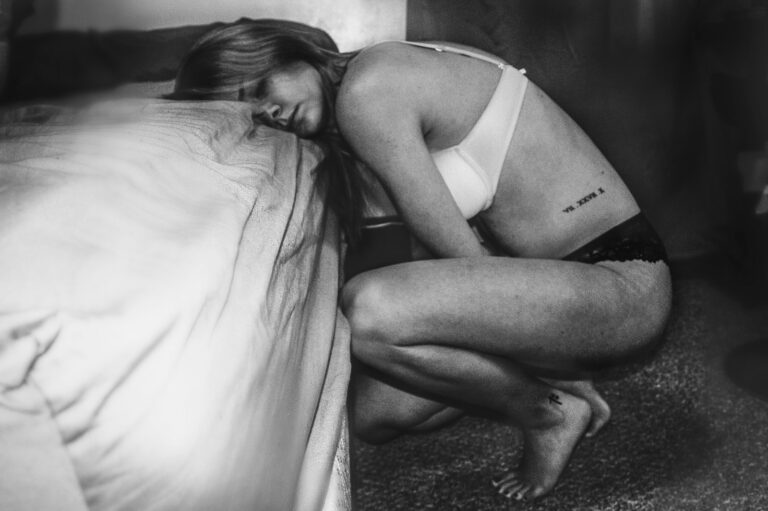Sex should not hurt during or after it, and a burning sensation in the vulva can be scary or uncomfortable. But a quick visit to your nurse or doctor can help determine what’s going on and how to treat it.
Rough sex or using sex toys without enough lubrication can also cause irritation and burning. Chemical irritants like scented soaps or products, and certain medications can also trigger symptoms.
Causes
A burning sensation after sex can be scary, especially when it happens regularly. But it’s important to understand that the cause is usually not serious. In fact, it may be due to something as simple as a lack of lubrication or an allergy. It could be a sign of a sexually transmitted infection, but that is usually easy to diagnose with a routine screening test.
Allergies to fabrics, soaps, lotions and lubricants can all irritate the vulva and lead to a burning feeling after sex. It may also be a sign of a urinary tract infection, or even a herpes outbreak. Some STIs, such as chlamydia, gonorrhea and trichomoniasis, can also cause a burning sensation after sex if they are left untreated.
Menopause can cause the hormone changes that lead to vaginal thinning and dryness, which can make it more difficult to lubricate the area, leading to pain and burning during sex. Other conditions that can contribute to vaginal thinning and dryness include polycystic ovary syndrome, radiation therapy and certain medications.
Sometimes sex can be painful or uncomfortable because of psychological stresses about sex, the relationship or past experiences. This can cause a person to unconsciously tense up and tighten the muscles around their genitals, which can then cause friction. An ice pack or cold compress can help relieve the discomfort and numb the area.
Treatment
Vaginal burning symptoms can be treated with a wide range of products and procedures. Treatments may include medically prescribed antifungal agents, such as diflucan or clotrimazole; antibiotics for an infection, like erythromycin or ciprofloxacin; or prescription hormones, delivered locally with a cream, ring or pill, to relieve menopausal symptoms.
Chemical irritants that cause burning can be resolved by switching to natural self-care and household products that are gentler to the genital area, such as mild soaps, fragrance-free laundry detergents and pads, and unscented toilet paper. In addition, switching to organic cotton tampons and pads, or using a water-based lubricant before penetrative sex can help reduce vaginal burning.
If a yeast infection is causing the burning, health experts recommend taking probiotic supplements to support healthy bacteria in the vulva, as well as eating more fermented foods such as yogurt, kefir, kimchi and pickles. Myrrh can also be a helpful herbal remedy to treat trichomoniasis, another common sexually transmitted infection that causes vaginal burning.
A doctor can diagnose the root cause of a burning sensation in the vulva with a pelvic exam, urine and vaginal swabs, blood tests or a Pap smear. In more severe cases, doctors can prescribe medications to reduce pain and inflammation, as well as ointments and creams that promote healing and soothe inflamed tissues. For women with vulvodynia, counseling can be an important part of treatment to address issues that may contribute to the condition, including insecurity, poor body image and relationship problems.
Prevention
While the cause of vaginal burning after sex may be difficult to determine, it is important to treat the underlying issue. If this symptom occurs frequently, or is a new sensation, it is best to see a doctor. This will allow them to diagnose the problem and prescribe a treatment if necessary.
For example, if a woman is experiencing pain during sex because of lack of lubrication, she can start using a water-based lube. This will help increase the amount of natural lubrication and reduce friction, preventing burning. In addition, women who are experiencing sex-related burning could benefit from having more foreplay before engaging in sexual activity.
Another way to prevent burning during sex is by practicing good hygiene. This includes using a barrier method or abstaining from sex if you are sick. This will reduce the chances of bacterial infections or sexually transmitted diseases.
Lastly, it is a good idea to have regular sexual health screenings. This will help detect conditions like chlamydia, gonorrhea, and herpes, all of which can cause a burning feeling after sex. If you do have an STI, treating it right away can eliminate the burning sensation and prevent complications down the road. A doctor will also be able to recommend other methods of prevention, such as switching condom brands or types if a woman is allergic to sperm.
Getting Help
Despite being something we tend to brush off as a “normal” part of having sex, your vagina shouldn’t hurt during or after it. That’s why it’s so important to get the help you need if your vulva is acting up, whether it’s using a lube that won’t burn (look for one with glycerin) or even putting an ice pack on it to numb the area, explains Kanani.
The most common reason a vagina can hurt after sex is because of an infection like yeast, bacterial vaginosis, or an STI like chlamydia or gonorrhea. These infections can cause a burning sensation in the vulva, and sex rubbing on those already-inflamed tissues can exacerbate that feeling.
Finally, a painful vulva can also be caused by a lack of arousal before you have sex. “Not being in the mood can result in not enough lubrication, leading to irritation and burning,” says ob-gyn Christine Greves.
If you’re experiencing a burning sensation, it’s worth popping in to see your GP if it persists. You may need to take medication and your GP might be able to suggest other ways to help you feel better in the meantime. And don’t forget to practise good hygiene by washing your vulva with soaps that are safe for the area, and using barrier methods when you have sex.
See Also:


